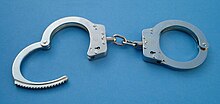The New York Times recently reported that federal prosecutors are using federal inmate emails sent to their defense lawyers as evidence of wrongdoing. The evidence is being used as additional leverage to force pleas of guilty for those not yet convicted and during sentencing hearings for those already convicted.
 Although many jurisdictions are divided as to whether this evidence is permissible some federal judges are accepting the notion that defendants in custody waive any rights to private correspondence with their defense lawyers thru email.
Although many jurisdictions are divided as to whether this evidence is permissible some federal judges are accepting the notion that defendants in custody waive any rights to private correspondence with their defense lawyers thru email.In the Middle District of Florida in Tampa most federal prisoners are placed in the Pinellas County Jail in Clearwater while awaiting trial. But if convicted the defendants are hastily sent to Citrus County to await sentencing. Neither the Pinellas nor the Citrus jail offers email for defendants.
Once federal defendants are transferred to a federal facility under Bureau of Prison guidelines then email is provided. Many defendants may be under the false impression that their email to their defense counsel is protected under attorney-client privilege.
All telephone calls to and from prisoners in Florida prisons are recorded. All traditional mail to and from prisoners is opened not only to stop contraband from entering the jail, but in an effort to make certain that the mail is not used to further any criminal conspiracy or enterprise. Telephone calls and traditional mail are often used as evidence in federal and Florida courts against prisoners.
So how does a defense lawyer conduct a defense if his client in incarcerated in Florida? It doesn't matter whether the client facing a life sentence is charged with a federal conspiracy to traffic in cocaine with 10,000 pages of evidence or if the client is facing a simple battery misdemeanor charge with two pages of evidence. The evidence will be discussed in the following manner:
Upon entry to the Pinellas County Jail your defense attorney is given access to a small, gray, grim room which is presumably free from eavesdropping or other intrusion. The lawyer and his client work from two metal chairs and an old folding game table. Alleged first degree Murder charge? Game table. This face to face meeting place is the only method of safe communication provided for any alleged offense in Pinellas County.
Yet much of the correspondence and communication in America today is conducted via email. All prisoners in both federal and Florida prisons should be given unrestricted email access if not to their families and loved ones, at least to their defense lawyers. It would even free up the wait time for the meeting rooms which are often filled.
The most important aspect of the lawyer-client privilege is the ability to communicate. Without a free exchange of ideas between defense counsel and client the lawyer-client privilege is meaningless. Lawyers for prisoners should be able to routinely send and receive emails from those they represent without fear that the emails may compromise clients in the future.
